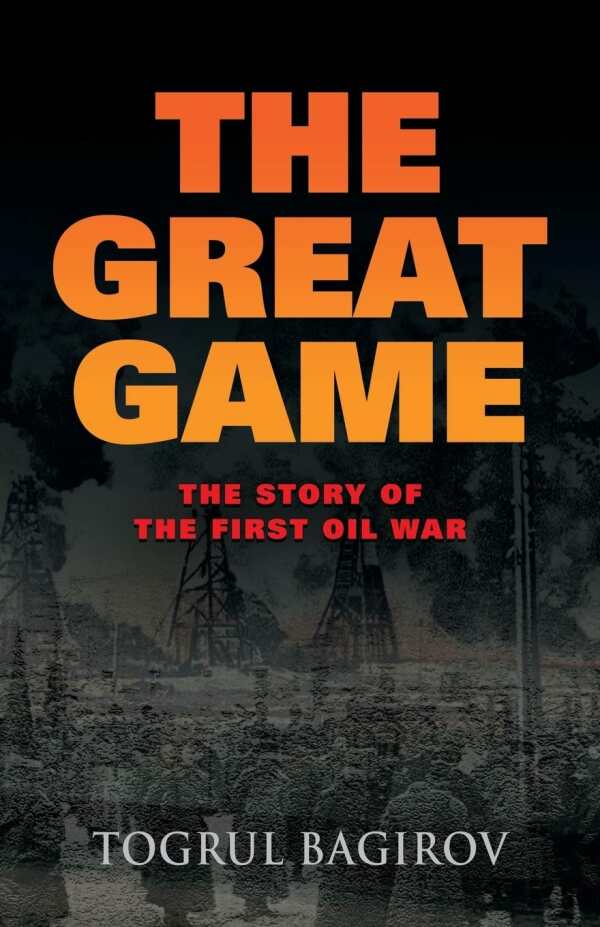The Great Game
Story of the First Oil War
With its strong attention to the historical record, The Great Game is a sympathy-building tale.
In Togrul Bagirov’s captivating historical novel The Great Game, a man is driven by his intellect and his desire to do good.
The shores of the Caspian Sea are the battleground for the First Oil War in the late 1800s. The Nobels are en route to the region to take over and revolutionize Azerbaijan’s burgeoning oil industry, but they are competing with other wealthy families who seek the same fortune and fame; both the Rothschilds and the Rockefellers have their eyes on the region.
Emanuel Nobel takes the helm, ushering in an era of rapid technological evolution. His keen intellect and staunch morality make him a target as the region blossoms into a regional power center whose tendrils spread across the globe. Political backstabbing and espionage abound. Emanuel struggles to keep his company, his family, and the region prosperous as the Russian Revolution looms.
The book’s outward focus is on the First Oil War. It details period economic inequalities and the geopolitical race to secure oil; historical figures, including Lenin and Stalin, factor in. Still, the spotlight finds, and remains focused on, Emanuel. The book’s personalization of the historical record makes its story both more dramatic and more sympathetic.
Emanuel evolves from a whiny teenager to become a captain of industry in a fascinating fashion. His family company becomes an empire due to his steady hand. His dedication to improving the oil industry is overshadowed only by his drive to improve the lives of those around him; company workers and their families are shown to experience a massive improvement to the qualities of their lives.
The relationships that Emanuel forges in Azerbaijan have far-reaching effects. A chance meeting with a trade attaché who turns out to be a capable spy leads to romantic bonding; their connection survives great challenges. Emanuel also finds romance with a friend’s daughter; she is built up through her love of literature, and factors in to later scenes.
As the book works up to the Russian Revolution, it maintains an involving pace. it makes use of subtle foreshadowing, but also builds up Emanuel’s business prowess and relationships. When political challenges take over his story, the novel’s time compresses. Emanuel flees; other characters’ stories conclude; the effect is rushed. Still, the ending is satisfying and keeps harsh historical realities in mind.
With its strong attention to the historical record, The Great Game is a sympathy-building tale.
Reviewed by
John M. Murray
Disclosure: This article is not an endorsement, but a review. The publisher of this book provided free copies of the book and paid a small fee to have their book reviewed by a professional reviewer. Foreword Reviews and Clarion Reviews make no guarantee that the publisher will receive a positive review. Foreword Magazine, Inc. is disclosing this in accordance with the Federal Trade Commission’s 16 CFR, Part 255.

